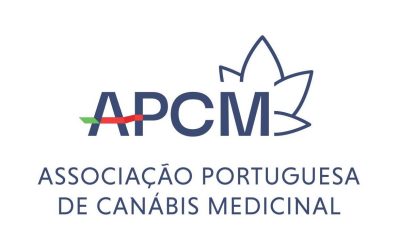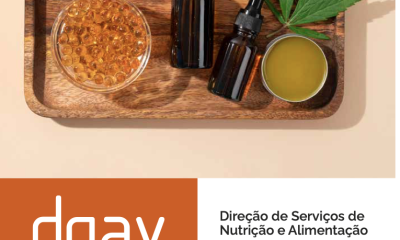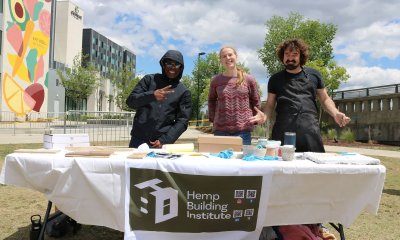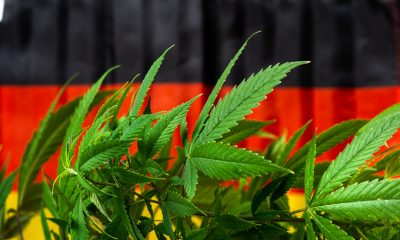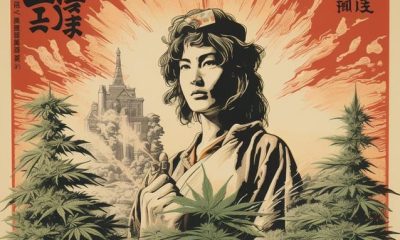As unlikely as it may seem, Europeans dealt with cannabis for centuries, unaware of its psychoactive powers — in fact, until the 1534th century, the concept of a drug, understood as a consciousness-altering agent, was completely foreign to them. But things began to change due to the curiosity and free spirit of Garcia de Orta, who in XNUMX traveled to Goa, then the capital of the Portuguese empire in India.
Garcia de Orta (1499-1568) was a Portuguese Jewish physician who lived in India, a pioneering author on botany, pharmacology, tropical medicine and anthropology. The book he published in 1563 includes references to hemp and cannabis, then known as “bblood”.
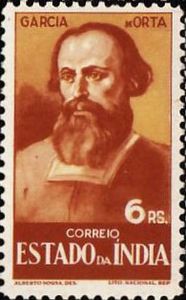 In the three decades following his arrival in the East, Garcia de Orta, born in Castelo de Vide around 1499 and died in Goa in 1568, compiled an exhaustive list of Indian “medicinal and useful” plants, published in Goa in 1563 under the title Colloquiums on Simples and Drugs and Medicinal Things of India. Considered one of the first manifestations of modern experimental science, this work was hailed in Renaissance Europe as the most important work on medicinal flora since Dioscorides' botany compendium, which was a school 1500 years ago — for this reason, today the Colóquios de Garcia de Orta are perhaps the only Portuguese work to have achieved universal status.
In the three decades following his arrival in the East, Garcia de Orta, born in Castelo de Vide around 1499 and died in Goa in 1568, compiled an exhaustive list of Indian “medicinal and useful” plants, published in Goa in 1563 under the title Colloquiums on Simples and Drugs and Medicinal Things of India. Considered one of the first manifestations of modern experimental science, this work was hailed in Renaissance Europe as the most important work on medicinal flora since Dioscorides' botany compendium, which was a school 1500 years ago — for this reason, today the Colóquios de Garcia de Orta are perhaps the only Portuguese work to have achieved universal status.
But what makes the Colloquiums a landmark of modern science is the fact that the work reflects the belief, then pioneer, that verification and experience are the true sources of learning and knowledge. Says Orta: “I have no hatred except for errores; nor have I love but the truth.”
And, in part, this scientific spirit of dispassionate observation is more remarkable than when Garcia de Orta dwells on visionary drugs used in India, such as opium, datura, and bangue, a psychoactive cannabis preparation—the considerations that Portuguese naturalist makes about these substances and their effects reveal such an absence of prejudice that, nowadays, more than remarkable, they would hardly find a parallel. As for bangue, Orta dedicates a chapter to it, the Colóquio Oitavo do Bangue, in which he explains “what things he (…) “And believe that because this [bang] is so used and by so many people, that there is no mystery and benefit” (it is even known that the bangue was sold “in a pharmacy made”).
How Garcia de Orta distinguished hemp from cannabis
Despite noting the similarities between the bangue plant and hemp, Orta considered “not to be this flax alcanave”, not only because “the seed is smaller and no longer white like the other”, but mainly due to the fact that the plant of the bang not being used in India to produce the linen “from which we make our shirts”. Orta could not have known that he was comparing the two strains of cannabis, sativa, the familiar hemp, and indica, which he had discovered in India — this classification would only be made in the XNUMXth century, precisely on the basis of data compiled by the first natural scientists. , like Orta.
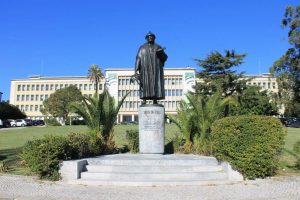
Statue of Garcia de Orta in front of the Institute of Hygiene and Tropical Medicine in Lisbon, Portugal
To our (Portugal's) disgrace, the afterword to Garcia de Orta's story is sadly familiar. According to the chronicles, after the death of the naturalist, his wife confessed to the Inquisition that, despite being a professed Catholic, Orta had always practiced the Jewish religion in secret. (Orta's parents were New Christians, having renounced the Jewish faith to escape exile when D. Manuel I expelled the Jews from Portugal.) And, living up to their sinister parchments, the Inquisition ordered not only that Orta's corpse exhumed and burned in the public square, but that all copies of the Colloquiums were destroyed by fire.
Fortunately for the heritage of humanity, however, the obscurantism prevailing in Portugal was not able to reduce to ashes “the fruit of that Orta” (in Camões' expression). Since knowledge had ceased to be considered the work of the Devil beyond the Pyrenees, in the year of the naturalist's death, the Colloquiums had been translated into Latin by a French botanist. In the following decades, editions appeared in Italian, French and English and, in the 1895th century, Orta's treatise had already become a mandatory reference work for the young European scientific community. In Portugal, the Colloquiums would only be reissued in XNUMX.
____________________________________________________
This text, by Luís Torres Fontes and João Carvalho, was originally published in the Portuguese edition of the book “the king goes naked”, by Jack Herer, and reproduced in #3 of the Cannadouro Magazine.
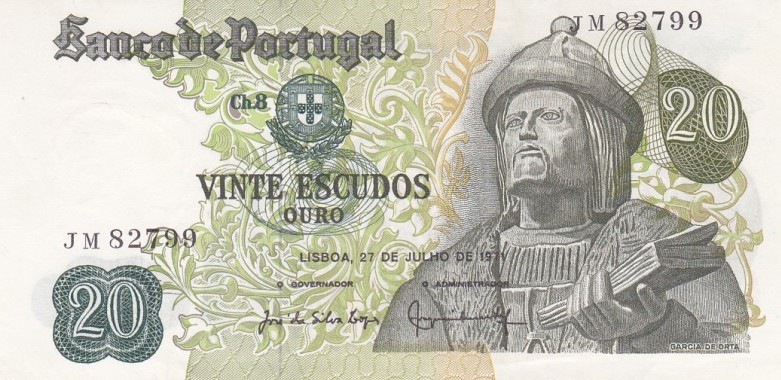





 In the three decades following his arrival in the East, Garcia de Orta, born in Castelo de Vide around 1499 and died in Goa in 1568, compiled an exhaustive list of Indian “medicinal and useful” plants, published in Goa in 1563 under the title
In the three decades following his arrival in the East, Garcia de Orta, born in Castelo de Vide around 1499 and died in Goa in 1568, compiled an exhaustive list of Indian “medicinal and useful” plants, published in Goa in 1563 under the title 
